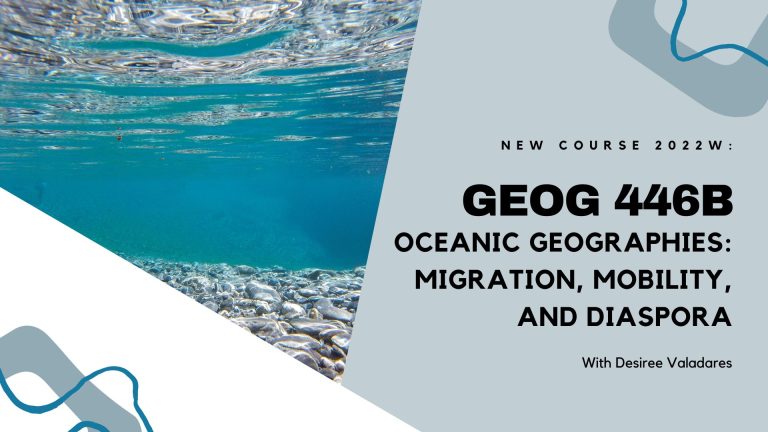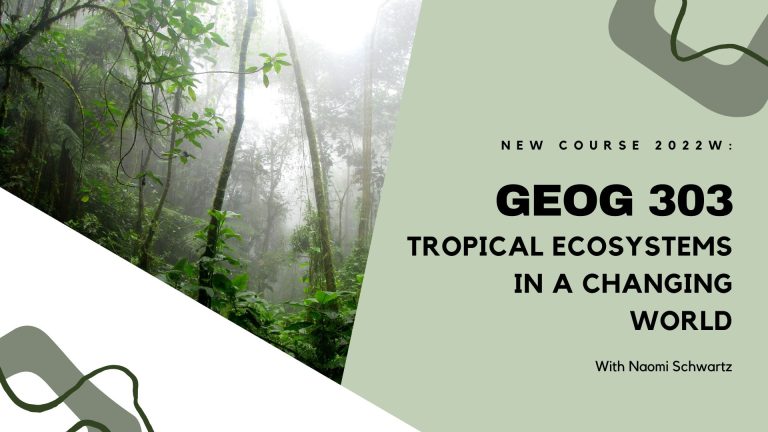

GEOG 346A Post-and Anti-Colonial Geographies
This course offers an examination of some key postcolonial and anticolonial theories to engage with questions of geographical difference, uneven development, and the politics of knowledge production at the global scale.


GEOG 346B Geographies of Urban Indigeneity
This course examines the geographies of urban Indigenous communities.
While the focus is on Urban Indigeneity within Canadian cities, we will also look at examples of urban Indigenous experiences in other settler colonial contexts, such as the US and New Zealand/Aotearoa.
Course themes and topics include: the role of Canadian policy and law in the removal of Indigenous presence from urban centers in the 19th and 20th centuries; the increased migration of Indigenous peoples into Canadian cities from the 1950s up to the present; and contemporary practices of Indigenous resurgence and resistance within urban space.


GEOG 446B Oceanic Geographies: Migration, Mobility, and Diaspora
This upper-year undergraduate course moves beyond landmasses to consider global oceanic connections, migration routes, diasporic populations, and seascape epistemologies.
Five units include: (1) Blue Geographies (2) Oceans as Archives (3) Atmospheric Encounters (4) Diasporic Proximities and Oceanic Flows, and (5) Watery Soundscapes. Each student will produce a research paper and an accompanying soundwork.


GEOS 303 Tropical Ecosystems in a Changing World
This course will provide students with an overview of tropical ecology, the major threats to tropical ecosystems, and conservation tools for protecting and restoring tropical ecosystems. We will address questions such as: why are tropical ecosystems so diverse? How are (or aren’t) tropical ecosystems different from temperate ecosystems? How have humans influenced the ecology and evolution of tropical species?
We will also examine contemporary threats to tropical ecosystems, including overexploitation of species, land-use change and habitat loss, and climate change. We will consider both the societal drivers of these factors and their impacts in the context of the biogeographical, evolutionary, and ecological principles covered in the first part of the course.
Finally, we will spend the last few weeks considering different approaches to addressing the biodiversity crisis in the tropics. We will discuss approaches for conservation and restoration, considering their effectiveness in both ecological and human contexts.


